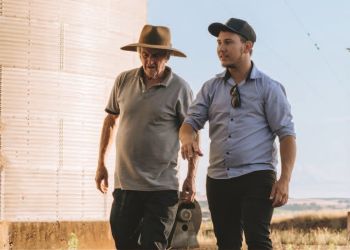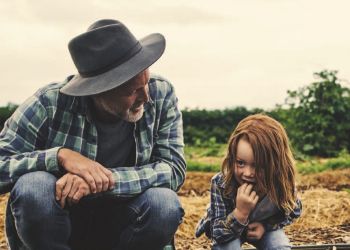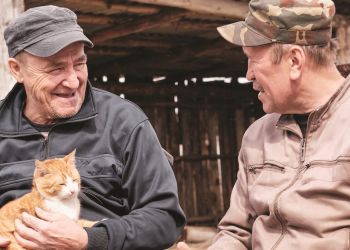 The following post was originally published on NACCHO’s Healthy People, Healthy Places blog. For more information about environmental health and infectious disease, visit http://essentialelements.naccho.org/.
The following post was originally published on NACCHO’s Healthy People, Healthy Places blog. For more information about environmental health and infectious disease, visit http://essentialelements.naccho.org/.
As local health departments prepare for cases of Zika in their communities, creative solutions and partnerships are necessary to control the spread of the virus. With recent outbreaks of Zika in the Americas, the number of Zika cases will increase and imported cases could result in local spread of the virus in some areas of the United States.
In the following interview, Sarah D. Matthews, MPH, Epidemiology Department Program Manager at the Florida Department of Health in Orange County (DOH-Orange), shares how her health department is engaging in a public-private partnership to test for suspected Zika virus cases. Thanks to existing partnerships with Florida Hospital and Orlando Health Systems, DOH-Orange has been able to build the capability to support medical providers with resources to facilitate the collection and shipping of appropriate specimens to the state’s lab for Zika virus testing.
Q: How does DOH-Orange collaborate with hospitals during the specimen collection and testing process for Zika?
A: Since Florida receives a lot of travelers from Zika-affected countries, on Feb. 3 our Governor Rick Scott directed the State Surgeon General to declare a public health emergency for the counties of residents with travel-associated cases of Zika. This allowed us to get more Zika testing kits from the Centers for Disease Control and Prevention (CDC). DOH-Orange had been implementing CDC’s Zika guidance, but not testing patients with suspected Zika virus as we no longer provide primary care. We learned from our practitioner and OBGYN colleagues that they were working with commercial labs that did not have the capability to collect and ship specimens for tests they did not perform and that the practitioner’s office seldom had the ability to collect and ship specimens for testing. With these emerging issues, my local health department talked to our partners at Florida Hospital and Orlando Health and began to discuss how we could collaborate.
We determined that if a physician has a patient that meets the testing criteria and the office did not have a process for specimen collection and shipment, they could utilize the hospitals’ laboratory capacity. The physician would write a script for a patient for Zika testing, our health department would provide the laboratory requisition form, which would serve as approval documentation for testing and the patient could go to a pre-identified hospital lab to have the specimens collected. The results of the specimens would be sent to the local health department to be shared with the patient’s primary care provider and advice on case management and prevention measures would be communicated. If the patient came in through the emergency room and does not have a primary care provider, our health department has authorization to give the patient their results directly. We have epidemiologists on call 24/7 to assist if after hours consultation is required.
In addition to connecting providers and hospital systems to specimen collection and testing, DOH-Orange enacts mosquito control measures almost immediately. Once an individual is added to our system as a suspected Zika case, they immediately become a person under investigation. Upon notification, the county mosquito control program will then do a two-week sweep of enhanced mosquito spraying within a one-block radius of the patient’s home.
Q: Implementing the specimen collection and shipping process happened very quickly. What made this partnership so effective?
A: Several past experiences with emerging pathogens have made this public-private collaboration more effective and efficient. With H1N1 in 2009, both hospital systems were acutely aware of public health limitations and stepped up to assist with screenings. In 2014, Orange County had the second case of MERS-CoV in the nation. After working closely with the hospitals during H1N1 and MERS, we had already established a collaborative relationship with them since we knew everybody. And during our planning for the Ebola response, we worked especially closely with the hospitals on their readiness to identify, isolate, and inform.
Q: Have you identified any challenges with the Zika specimen collection and testing process?
A: We are currently working with Florida Hospital Systems to develop and refine a process for uninsured and underinsured pregnant women who test positive for Zika so they may have access to the serial ultrasounds as outlined in the CDC guidance for follow up. We are coordinating with Florida Hospitals Systems’ high-risk maternity unit to provide a way to obtain serial ultrasounds at a low-cost. It is collaborative efforts like these that promote equal access to health care for all.
Q: Do you have advice for other local health departments preparing for cases of Zika?
A: If you haven’t had conversations with all of the entities who would be affected by an emerging infectious disease, now is the time to collaborate and support those who work to protect your community. You should be on a first name basis with your local healthcare colleagues and have their phone numbers.
Collaborate to identify where the gaps might be for Zika. For instance, in Florida we experienced cuts in mosquito control statewide. However, mosquito control is critical for controlling vector-borne diseases like Zika and Chikungunya, and we are consistently working to fill gaps in this area before it gets out of control. Having a great surveillance system in place and making sure that labwork gets done appropriately are key. Develop a proactive plan to enact preventive measures while waiting on lab results. Lastly, plan knowing that the federal guidance will change but continue to meet the needs of your community.
To learn more about the work of DOH-Orange related to Zika, view their Zika Fever Specimen Collection Protocol and lists of Specimen Collection locations. To stay updated on what local health departments need to know about Zika, view NACCHO’s ongoing Zika coverage.








